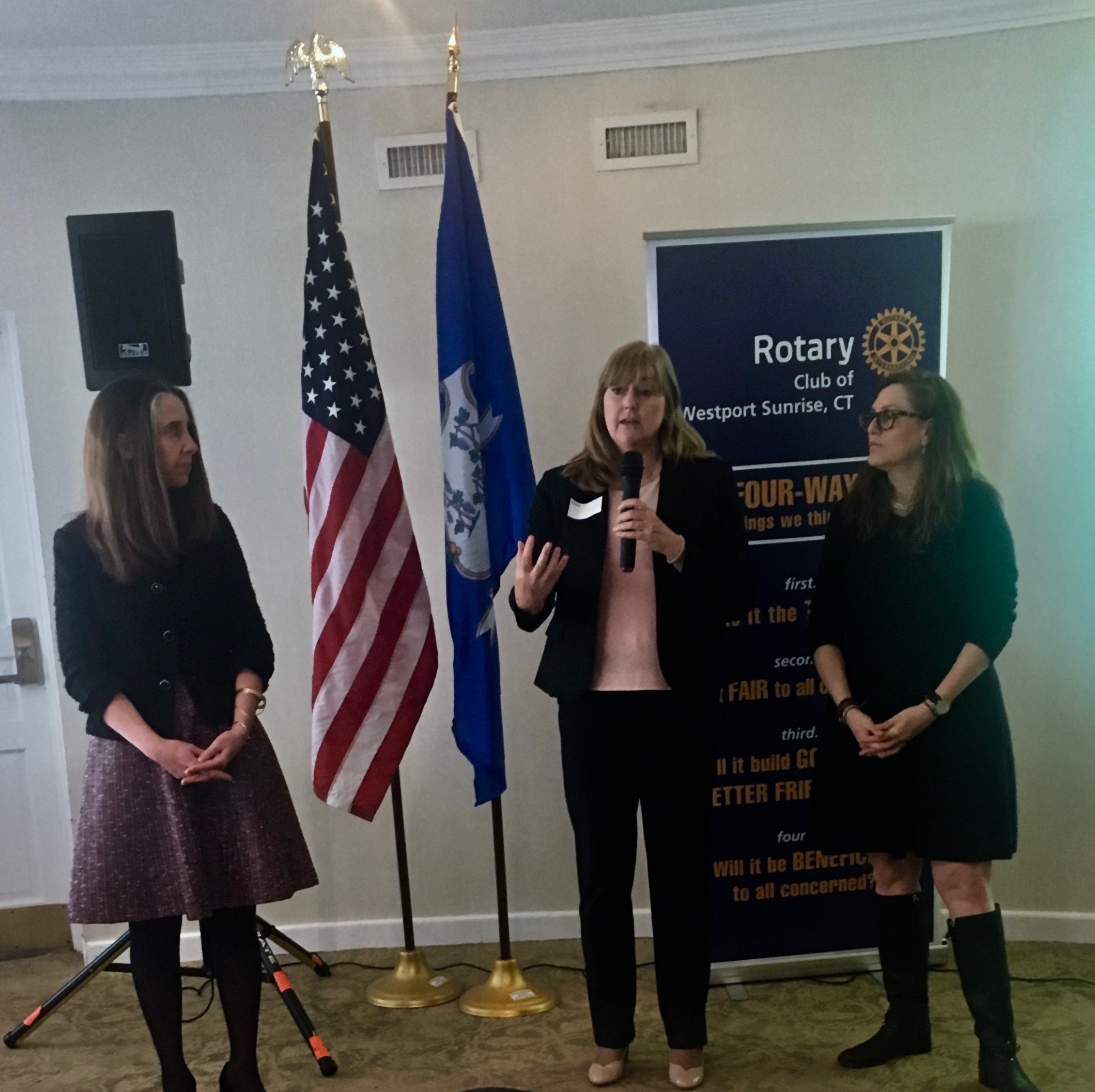
Last Friday Cohen & Wolf attorney Ken Bernhard introduced three of his partners who had come to talk to Sunrise Rotary about #MeToo — what it is, a bit of background, what it means to lawyers, and how we make our workplaces more user-friendly.
His partners were Courtney George, a labor litigator, Suzanne Sutton, whose practice is bankruptcy and legal ethics, and Susan Filon, a matrimonial lawyer, and a former guest expert on NBC and ABC TV.
Ms. Filon started, saying #MeToo is important, and lawyers can help the community understand it. She wants encouraged intellectual conversations to improve our perception of women in the workforce and in society.
Ms. George said that the movement was started by Tarana Burke ten years ago to create solidarity among women and children in underprivileged communities who are survivors of sexual harassment and assault.
It exploded in the wake of an article in The New York Times last November about Harvey Weinstein’s decades-long sexual assaults on women.
Soon after, actress Alyssa Milano initiated #MeToo on Twitter when she asked every woman who has been a victim of sexual assault or harassment to post her #MeToo tweet so we can find out how significant the problem has been. Her post went viral. Almost overnight millions of women responded.
Within just a couple of months, we saw numerous firings in the entertainment and news businesses and in government.
Since then it has become a subject of public discourse.
She offered some important events in what is now a 170-year struggle for women’s rights. The first was the unsuccessful 1848 Seneca Falls Convention that advocated for “full citizenship,” yet women did not earn the right to vote until the 19th Amendment was passed in 1920.
There were the Tailhook scandal, Bob Packwood’s resignation from the Senate in the wake of charges of sexual harassment and the continuing saga of Bill Cosby.
Then in 2016, Carlson v. Ailes started to tip the scales.
What behavior has #MeToo become the meme for? Ms. George said it may be “a lot of unwelcome conduct, not all of it legally actionable,” particularly in a career inhibiting environment.
Photo by Jeff Cohen, L-R --Courtney George, Suzanne Sutton, Susan Filon
She cited two workplace standards that are actionable. Quid Pro Quo, a one-on-one situation — “Have sex with me or I’m going to fire you.” Harvey Weinstein’s casting couch.
The other is broader, a hostile work environment, one marked by pervasive sexually explicit or sex based incidents that permeate an environment and interfere with a person’s ability to work.
So what do we do? Men have to treat women “like a person, not a woman, or a lady or a girl, so she can reach her fullest potential… we should work toward equality across our workforce so no one feels threatened or left out.”
Listen, appreciate and learn.”
As a society we’re getting there, though it takes time for the changes to evolve.